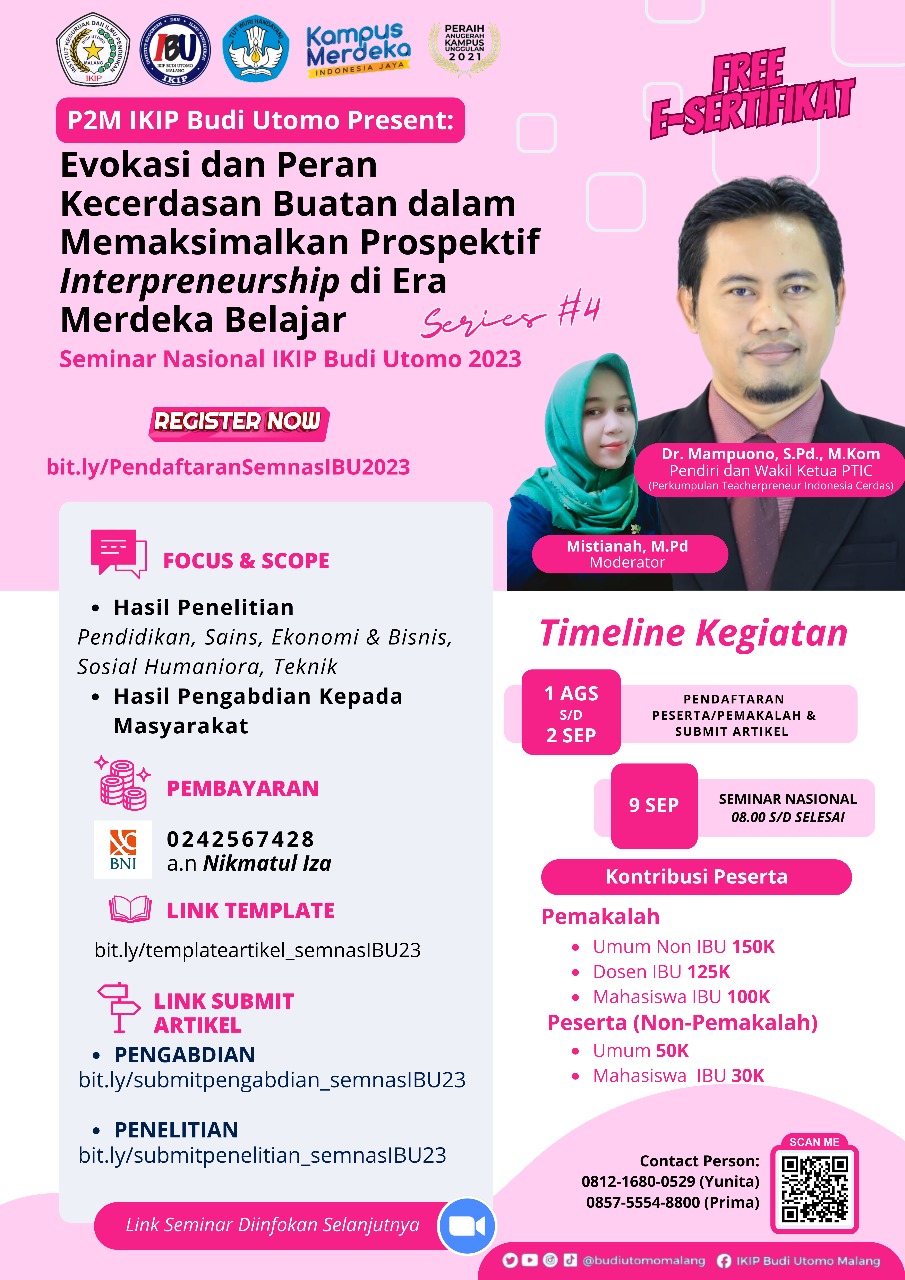Peran Orang Tua dan Guru dalam Perkembangan Anak Usia Dini di PAUD Kecamatan Kepanjen
Abstract
Early childhood education is an attempt to stimulate, guide, nurture and provide learning activities capable of generating abilities and skills of the child. The process of education and learning in early childhood should be done with the aim of providing a meaningful concept for children through a real experience. In early childhood children experienced a golden age (the golden years), which is a period where the child starts sensitive / insensitive to receive various stimuli. An understanding of the child's development is an important factor that must be owned by a parent in order to optimize the potential of children. Child Development and Vigotsky According to Jean Piaget, The National for the Educational of Young Children (NAEYC) defines early childhood education is the education that serves children ages birth to 8 years for half-day or full activity either at home or outside institutions. The division is based on the uniqueness of the age range in the rate of growth and development in Indonesia, listed in the curriculum and learning outcomes of early childhood, which is divided into the following phase ranges: (1) Period-old baby is born - 12 months; (2) The term "toddler" or children aged 1-3 years; (3) The term preschool aged 3-6 years; (4) The class B kindergarten age 4-5 / 6 years. Piaget's theory of the development of the concept of intelligence as well as biological systems build structures to function, intelligence growth is influenced by the physical and social environment, maturity and equilibration. All organisms are born with a tendency to adapt (adjust) with its environment. Vigotsky that the social system is very important in a child's cognitive development. Parents, teachers and children interact with friends and collaborate to develop an understanding. So learning occurs in a social context, and emerged a term zones of Proximal Development (ZPD). On the developmental aspects of early childhood elderly physic children experienced a golden age (the golden years), which is a period where the child starts sensitive / insensitive to receive various stimuli. Sensitive period for each child is different, along with the rate of growth and development of individual children. Aspects of the elderly and their impact on child development there are several factors deciding how parental attitudes directly, among others, freedom, respect, emotional attachment, achievement, self respect children's creativity. With demimkian children will be motivated to engage in the learning process is dimbimbingan parents. Moreover, parents also need to provide a wide range of facilities needed for their children without engaging or intervening too much in their activities




